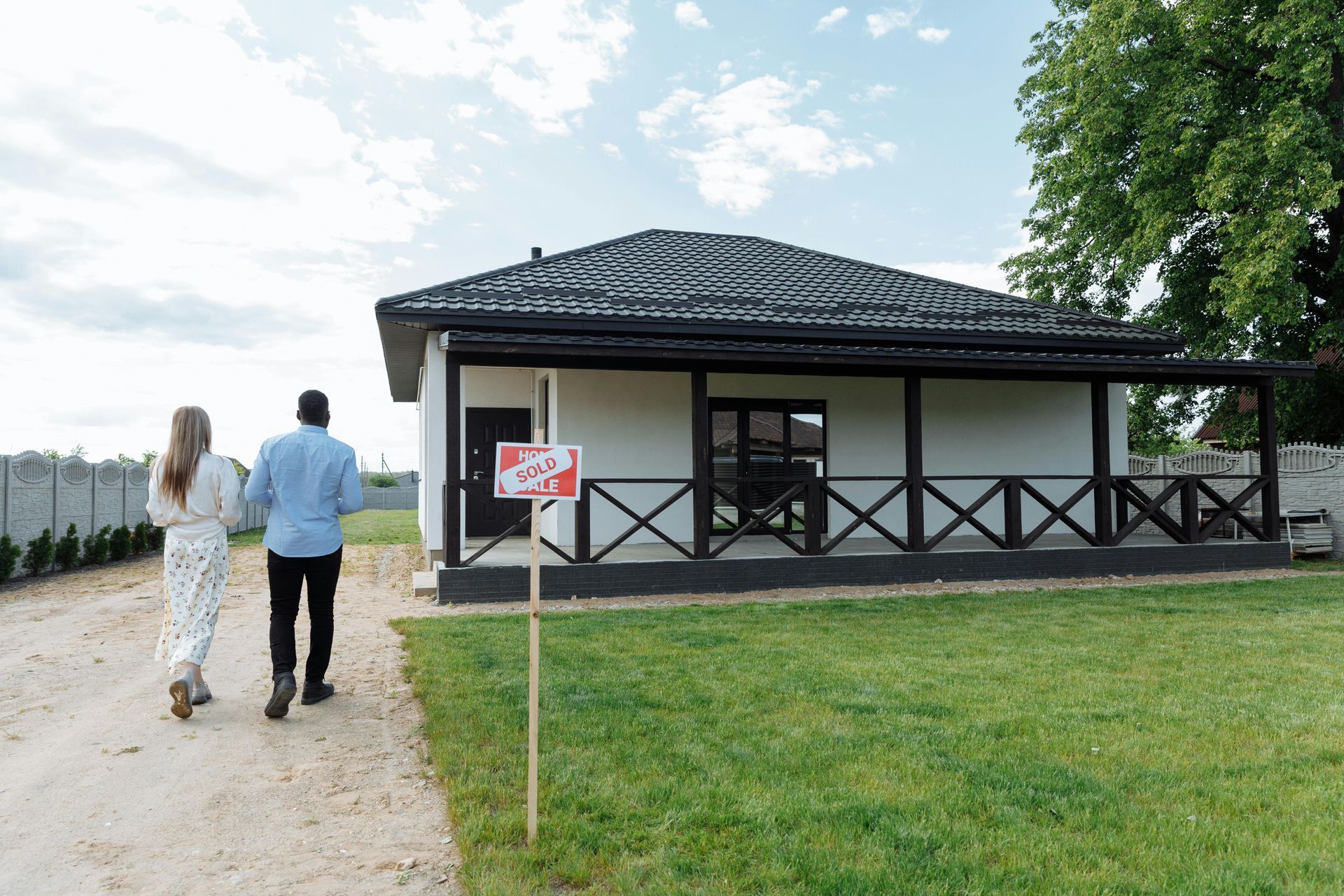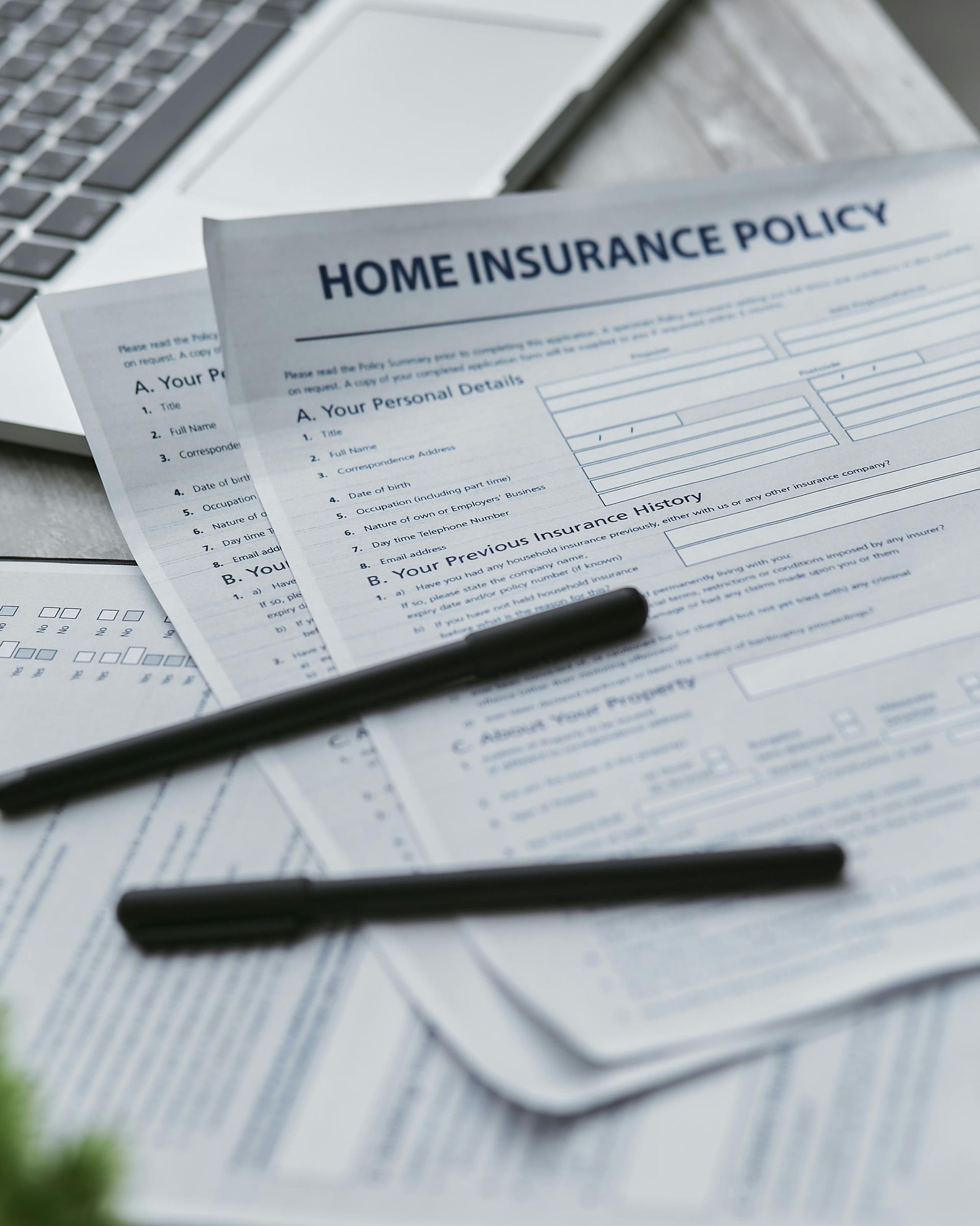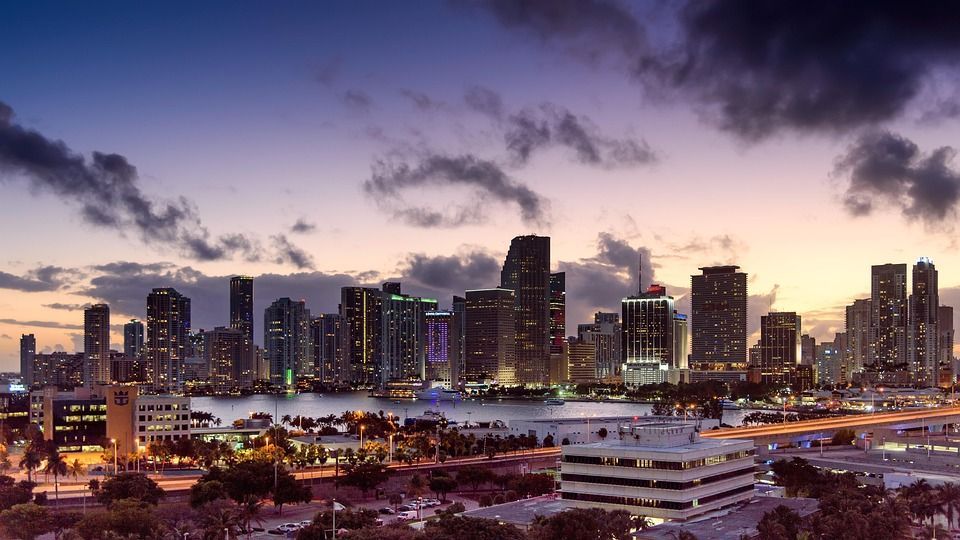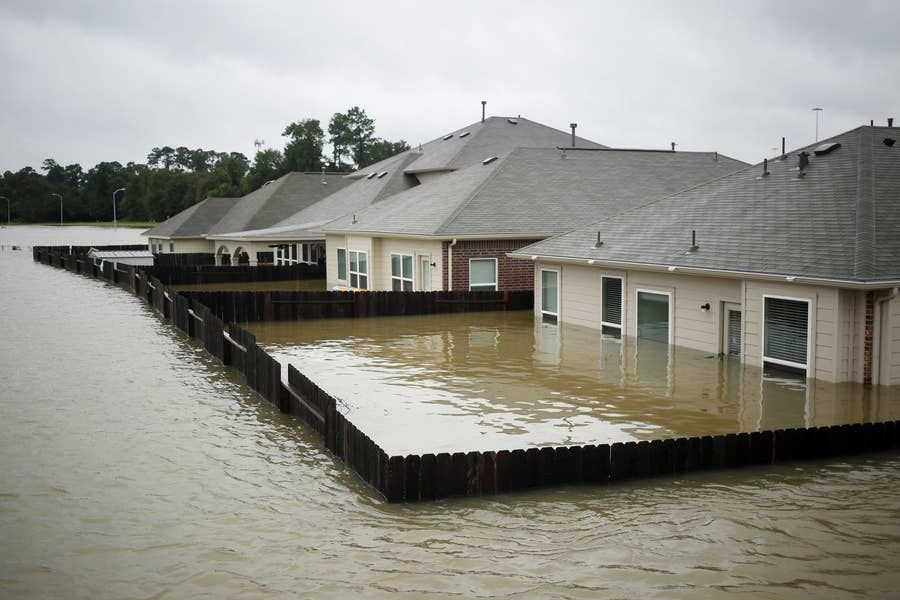The Importance of Commercial Insurance for Small Businesses
The Importance of Commercial Insurance for Small Businesses

Key Highlights
- Commercial insurance is vital for protecting your small business from financial losses due to accidents, property damage, and lawsuits.
- General liability insurance is a foundational coverage that nearly every business needs for protection against third-party claims.
- The terms "commercial insurance" and "business insurance" are often used interchangeably to refer to policies that safeguard a company.
- Essential types of insurance include property insurance, commercial auto insurance, and professional liability insurance, depending on your operations.
- Factors like your industry, business size, and claims history significantly influence the cost of your insurance policy.
- For business owners, finding the right coverage involves comparing quotes from different providers to match your specific needs and budget.
Introduction
As a small business owner, you face unique challenges and risks every day. Accidents can happen when you least expect them, from a customer slipping in your store to a professional error that leads to a client's financial loss. That's where commercial insurance comes in. It acts as a critical safety net, protecting your business from the potentially devastating costs of lawsuits, property damage, and other unexpected events. Having the right liability insurance isn't just a good idea—it's a fundamental part of a sound business strategy.
Understanding Commercial Insurance vs. Business Insurance
Have you ever wondered if commercial insurance and business insurance are the same thing? You're not alone. The terms are often used interchangeably in the industry, which can be confusing for business owners. Essentially, both refer to insurance products designed to protect a company from financial harm.
"Business insurance" is a broad, catch-all term that can describe a single coverage or a bundle of different policies. Commercial insurance is a more formal term that specifies policies created for business purposes, as opposed to personal ones. Ultimately, the goal of both is to safeguard your livelihood. This guide will explore the various types of insurance available to you.
Key similarities and differences between business insurance and commercial insurance
While the terms "business insurance" and "commercial insurance" are often used to mean the same thing, understanding their nuances can be helpful. The primary similarity is their purpose: to protect your business from financial damages resulting from accidents, lawsuits, and other unforeseen events. Both terms encompass a range of policies, from general liability to professional liability insurance.
The main difference is often one of semantics and context. "Business insurance" is a more general, user-friendly term, while "commercial insurance" is the industry-standard term that clearly distinguishes these policies from personal insurance, like your home or personal auto policy.
Here’s a simple breakdown:
- Similarity: Both protect your business assets and operations.
- Similarity: Both refer to a suite of coverage options like liability, property, and auto.
- Difference: "Commercial insurance" is the technical term used by insurance providers.
- Difference: "Business insurance" is a broader, more common term used in general conversation.
Why every small business in the United States should consider commercial insurance

For any small business, it's not a matter of if an accident will happen, but when. A single lawsuit or unexpected event could lead to a significant financial loss, potentially putting you out of business. This is why all small business owners in the United States should seriously consider securing commercial insurance. It provides a crucial buffer against the high costs of legal fees, medical bills, and property repair or replacement.
Beyond protecting your finances, having the right liability insurance is often a requirement. Many states mandate certain coverages, such as workers' compensation if you have employees. Furthermore, clients and landlords may require you to show proof of insurance before they will sign a contract or lease with you.
Without coverage, your personal assets could even be at risk, especially if you operate as a sole proprietor. Commercial insurance offers peace of mind, allowing you to focus on growing your business knowing you are protected from the unexpected.
Essential Types of Commercial Insurance Policies for Small Businesses
Choosing the right insurance can feel overwhelming, but it boils down to your specific business needs. Several essential types of insurance form the backbone of a solid protection plan. Nearly every business can benefit from general liability insurance, which covers common accidents involving customers. Other critical policies include commercial property insurance for your physical assets and commercial auto insurance if you use vehicles for work.
Many small businesses opt for a Business Owner’s Policy (BOP), which conveniently bundles liability and property coverage. Depending on your industry, you might also need specialized protection like professional liability insurance. Let's look closer at some of these core coverages.
General liability insurance and its role in protecting your company
General liability insurance is one of the most common and crucial types of insurance for any small business. Think of it as your first line of defense against claims that your business caused harm to a third party. This liability coverage is designed to protect you from the high costs associated with common accidents that can occur during your daily operations.
For example, if a customer trips and falls in your shop, general liability can help cover their medical expenses. If you or an employee accidentally damages a client's property while on a job, this policy can pay for the repairs. It's essential protection for any business that interacts with the public, whether you have a physical storefront or visit clients at their locations.
General liability insurance typically helps cover:
- Bodily injury: Medical costs for a non-employee injured at your business.
- Property damage: Costs to repair or replace property you accidentally damaged.
- Personal injury: Claims of libel or slander.
- Legal fees: Your defense costs if a lawsuit is filed against you.
Workers’ compensation, commercial auto, and property insurance explained
Beyond general liability, three other policies are cornerstones of protection for many business owners. If you have employees, most states legally require you to carry workers' compensation. This insurance covers medical costs and lost wages for employees who get sick or injured on the job.
If your business owns or uses vehicles for work-related tasks, such as making deliveries or traveling to job sites, you'll need commercial auto insurance. A personal auto policy won't cover accidents that happen during business use. Finally, commercial property insurance protects the physical assets your business owns, including your building, equipment, and inventory, from events like fire, theft, or natural disasters. This is often bundled with liability coverage in a Business Owners Policy (BOP).ste your own from a different source.
The body content of your post goes here. To edit this text, click on it and delete this default text and start typing your own or paste your own from a different source.
Factors That Affect the Cost of Small Business Insurance
What will you pay for business insurance? There's no single answer, as the cost is based on your unique situation. The median cost for new customers can range from around $42 per month for professional liability to $80 for workers' compensation, but your rate will depend on several key factors. Insurance providers calculate your premium based on your level of risk.
Factors like your industry, the number of employees you have, your desired coverage limits, and your claims history all play a role. Even your location can influence the final price. Understanding these variables can help you see what drives your cost and how to find the coverage you need at the best price.
Industry risks, business size, and coverage limits
Your type of business is one of the biggest factors in determining your insurance cost. An industry with higher risks, like construction or landscaping, will naturally have higher premiums than a low-risk profession like consulting. This is because the likelihood of an accident or claim is greater. For example, a roofer faces more daily hazards than a freelance writer.
Your business size also matters. The more employees you have, the higher your workers' compensation and general liability coverage costs will likely be, as your exposure to risk increases. A larger operation simply presents more opportunities for something to go wrong.
Finally, the coverage limits you choose directly impact your premium. Higher limits offer more protection but come at a higher price. Key factors include:
- Industry: High-risk professions pay more than low-risk ones.
- Business Size: More employees or larger operations increase risk and cost.
- Coverage Limits: Higher limits for policies like general liability coverage will increase your premium.
How your location and claims history influence business insurance quotes

Where you operate your business can have a real impact on your insurance rates. Some locations are more prone to certain risks, such as natural disasters like hurricanes or wildfires, which can increase the cost of property insurance. Additionally, state laws and regulations vary, affecting requirements and costs for coverages like workers' compensation. An insurance agent can help you navigate the specific requirements in your area.
Your claims history is another critical factor. If you have a history of filing frequent claims, insurance providers will see your business as a higher risk and will likely charge you more. On the other hand, a clean record with no past claims can lead to more favorable business insurance quotes.
For small business owners, maintaining a safe workplace and minimizing claims is a direct way to help control insurance costs over the long term. A proactive approach to risk management can pay off with lower premiums.
How to Get and Compare Business Insurance Quotes Online
In the past, getting business insurance was a lengthy process. Today, you can easily get and compare business insurance quotes online in minutes. This convenience allows you to see options from multiple insurance providers, ensuring you find the right coverage at a competitive price. You can complete an application from your computer and often get covered in less than 24 hours.
If you prefer a more personal touch, you can also work with a licensed insurance agent who can guide you through the process. Whether you go online or work with an agent, the goal is to find a commercial insurance policy that fits your business and your budget.
The process of requesting a business insurance quote
Requesting a business insurance quote online is a straightforward process. You'll begin by providing some basic information about your company. This helps insurance providers understand your unique risks and determine the right coverages and pricing for you. Be prepared to share details about your operations.
While you may need to provide some sensitive information, it is used for business purposes only—to generate an accurate quote. An online application will typically ask for the following:
- Your industry or type of business
- Your location and number of employees
- Your annual revenue and payroll
- Information about any past claims
Once you submit your application, you can receive free quotes from top-rated carriers. If you have questions, a licensed insurance agent is often available to help you understand your options and finalize your policy.
Tips for comparing small business insurance providers and policies
When you receive your quotes, it's tempting to just pick the cheapest option. However, the lowest price doesn't always mean the best value. To find the right insurance, you need to compare the policies and the insurance providers carefully. A reputable carrier with strong financial standing and good customer service is essential for a positive experience, especially if you need to file a claim.
Look closely at the details of each type of policy. Check the coverage limits to ensure they are high enough to adequately protect your business. You should also review the deductibles, which is the amount you'll pay out-of-pocket before your insurance kicks in.
Here are a few tips for your comparison:
- Check the carrier's reputation: Look for A-rated carriers with positive reviews.
- Compare coverage and exclusions: Make sure the policy covers your specific risks and you understand what isn't covered.
- Balance premium vs. deductible: A lower premium might come with a high deductible, so find a balance that works for your cash flow.
Customized Insurance Solutions for Startups and Home-Based Businesses

Startups and home-based businesses have unique insurance needs that "one-size-fits-all" policies might not address, potentially leaving you with dangerous coverage gaps. That's why customized insurance is so important. As a new or small operation, you need a policy that is flexible and can grow with you. Common solutions like a Business Owner’s Policy (BOP) are great starting points, as they bundle key coverages.
Depending on your services, you may also need professional liability insurance. Tailoring your coverage from the beginning ensures you are protected without paying for insurance you don't need. Next, we'll explore how to get the right protection for these specific business models.
Tailoring a business insurance policy to fit new businesses
As a startup, your business is constantly evolving, and your insurance should be able to keep up. The key is to build a business insurance policy that matches your current risks but is flexible enough to adjust as you grow. Don't assume a basic policy covers everything. For example, standard liability doesn't cover professional errors or equipment breakdown unless you add specific coverages.
Start by assessing your immediate needs. What does your type of business do? What assets do you need to protect? A licensed agent can help you identify your exposures and recommend the right policies. This ensures you're not over-insured at the start but can easily add coverage as you hire employees, buy more equipment, or expand your services.
Customized coverage means you can feel confident you're getting the right protection for your business purposes at every stage. Key considerations for startups include:
- Flexibility to add or change coverage as the business grows.
- Protection for specific risks, such as cyber liability if you handle customer data.
Do home-based businesses really need separate small business insurance?
It's a common and costly mistake to assume your homeowners insurance covers your home-based business. The truth is, it doesn't. A standard homeowners policy typically excludes coverage for business-related activities, equipment, and inventory. If a client is injured at your home office or your business computer is stolen, your personal property coverage won't help.
This is why a separate business insurance policy is essential, even if your office is just a corner of your living room. You still face risks like liability for client injuries, damage to your business equipment, and claims of professional negligence. Policies like professional liability insurance are crucial if you provide services or advice.
Without coverage, you are personally responsible for any business-related claims. A simple business owner's policy or general liability insurance can provide the protection you need. You might also consider business interruption insurance to cover lost income if you're unable to operate from your home.
Filing and Managing Claims with Your Commercial Insurance Provider
Even with the best precautions, accidents happen. When they do, your commercial insurance provider is there to help you manage the aftermath and minimize the financial loss. Knowing how to file a claim is a critical part of having a business insurance policy. The process should be as smooth as possible, allowing you to get back to running your business.
A good provider will have specially trained agents to support you at every step of the way, from the initial report to the final resolution. Let's walk through what to do when you need to make a claim and what you can expect from the process.
Step-by-step guide to making a claim on your business insurance policy
When an incident occurs, acting quickly and correctly can make a significant difference in the outcome of your claim. The first priority should always be ensuring everyone's safety and seeking medical care if needed. Once the immediate situation is stable, it's time to start the claims process.
Don't delay in reporting the incident. The sooner you contact your insurance agent or provider, the sooner they can begin helping you. Be prepared to provide a detailed account of what happened. Document everything you can, including taking photos of any damage and gathering contact information from witnesses.
Here is a simple guide to follow:
- Contact your insurer immediately: Report the incident to your insurance agent or the claims department as soon as possible.
- Document everything: Take photos, write down details of the event, and collect names of anyone involved.
- Provide necessary information: Cooperate with your insurer by providing all requested documents and information promptly.
What to expect after filing a commercial insurance claim
After you've filed a commercial insurance claim, your provider will assign an adjuster to your case. The adjuster's job is to investigate the incident, assess the damage, and determine what is covered under your policy. This process can involve interviewing you and any witnesses, reviewing your documentation, and inspecting any damaged property.
It's important for business owners to stay in communication with their insurance agent or adjuster throughout this period. Be prepared for the process to take some time, especially for complex claims involving significant damages or legal fees. Your policy will dictate exactly what is covered.
Depending on your coverage, your insurance might pay for repairs, medical bills, or legal defense costs. If your business operations are halted, business interruption insurance could help cover lost income. Understanding your policy beforehand helps set clear expectations for the claims process.
Conclusion
In summary, commercial insurance is a vital component that every small business should prioritize. It provides financial protection against unforeseen events that could jeopardize your operations, ensuring you can focus on growth without constant worry. By understanding the various types of coverage and factors influencing costs, you can make informed decisions tailored to your unique business needs. As you navigate the complexities of commercial insurance, remember that having the right policy can be the difference between thriving and merely surviving in today's competitive landscape. If you're ready to protect your business and want expert guidance, get a free consultation to explore your options and secure the peace of mind you deserve.
Frequently Asked Questions
Is commercial insurance required by law for small businesses in the United States?
While the federal government does not mandate commercial insurance for every small business, most states have laws requiring specific coverages. For instance, if you have employees, you will almost certainly need workers' compensation insurance. Certain professions may also need proof of liability coverage to obtain a license.
How does commercial insurance protect against liability claims?
Liability insurance, such as general liability insurance, protects your business by covering the costs associated with claims of bodily injury or property damage. This includes paying for legal fees to defend your business in a lawsuit, as well as any settlements or judgments you are ordered to pay.
Are there special commercial insurance policies just for startups?
There aren't specific policies labeled only for startups, but commercial insurance is highly customizable to fit a new business's needs. A Business Owner’s Policy (BOP) is a popular and cost-effective choice for startups, as it bundles general liability and property insurance. Professional liability or omissions insurance can be added as needed.








